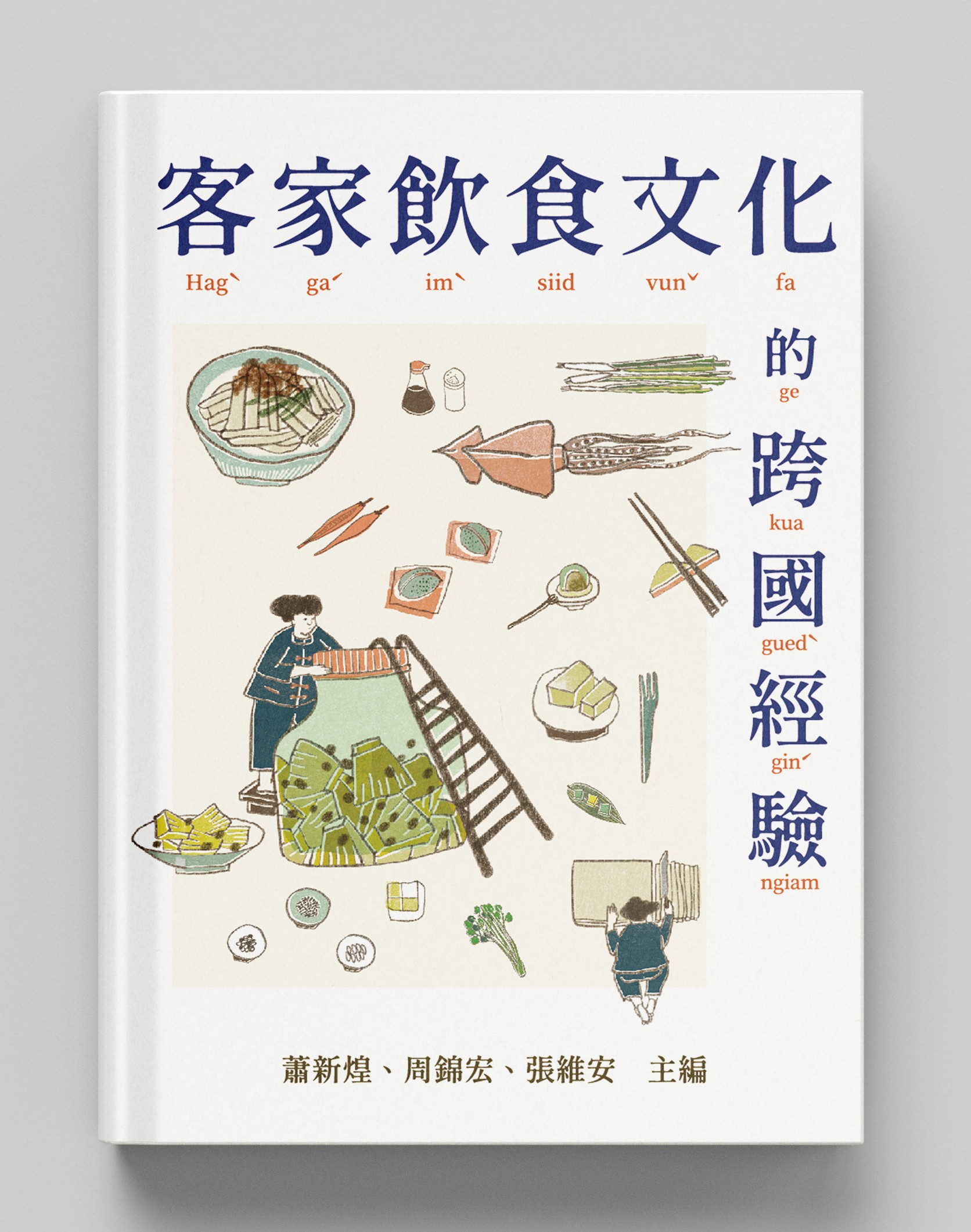
Research & Library
Transnational Experiences of Hakka Culinary Culture
- Source:客家文化發展中心
- Publication Date:2023/09/29
- Last updated:2025/11/08
- Count Views:72

Editors: Hsiao Hsin-huang, Chou Chin-hung, and Chang Wei-an
Authors: Hsiao Hsin-huang, Chou Chin-hung, Chang Wei-an, Lai Shou-cheng, Yu Lung-tung, Hung Hsiu-ya, Hsieh Shih-yuan, Tao Chen-wei, Huang Wan-ling, Huang Shiun-wey, Cheung Sidney C.H., Kawai Hironao, Onn Huann Jan, Yokota Koichi, Lim Khay-Thoing, Chung Yi-yen, Lo Hsiu-mei, and Chen Shu-hua (listed in order of appearance)
Publication Date: First Edition, September 2023
Food plays a crucial role in shaping the image and cultural identity of the Hakka people. Examining Hakka cuisine across regions and nations provides valuable insights into the diverse manifestations of Hakka cultural life. In recognition of this significance, the Hakka Cultural Development Center of the Hakka Affairs Council organized the International Conference on Hakka Culinary Culture: Ethnicity, History, and Comparison on September 17–18, 2022.
The event featured keynote speeches by Professors Wu Yen-ho and Hsiao Hsin-huang, along with Linda Lau Anusasananan, author of The Hakka Cookbook. Scholars from Taiwan, Hong Kong, Japan, Malaysia, and the United States also presented papers on various aspects of Hakka food culture.
This volume, Transnational Experiences of Hakka Culinary Culture, collects 14 selected papers from the conference, along with three appendices introducing classic Hakka dishes, a state banquet menu, and a recommended bibliography on Hakka culinary culture.
The book is organized into two main sections:
1. Transnational Studies of Hakka Food Culture — featuring comparative and regional research on Hakka cuisine across Taiwan, China, Malaysia, and the United States.
2. Literary Representations of Hakka Food — exploring depictions of Hakka culinary traditions and meanings in literary works.
Through these contributions, the volume presents a rich and multi-layered exploration of how Hakka foodways reflect migration, memory, and cultural transformation within a global context.
